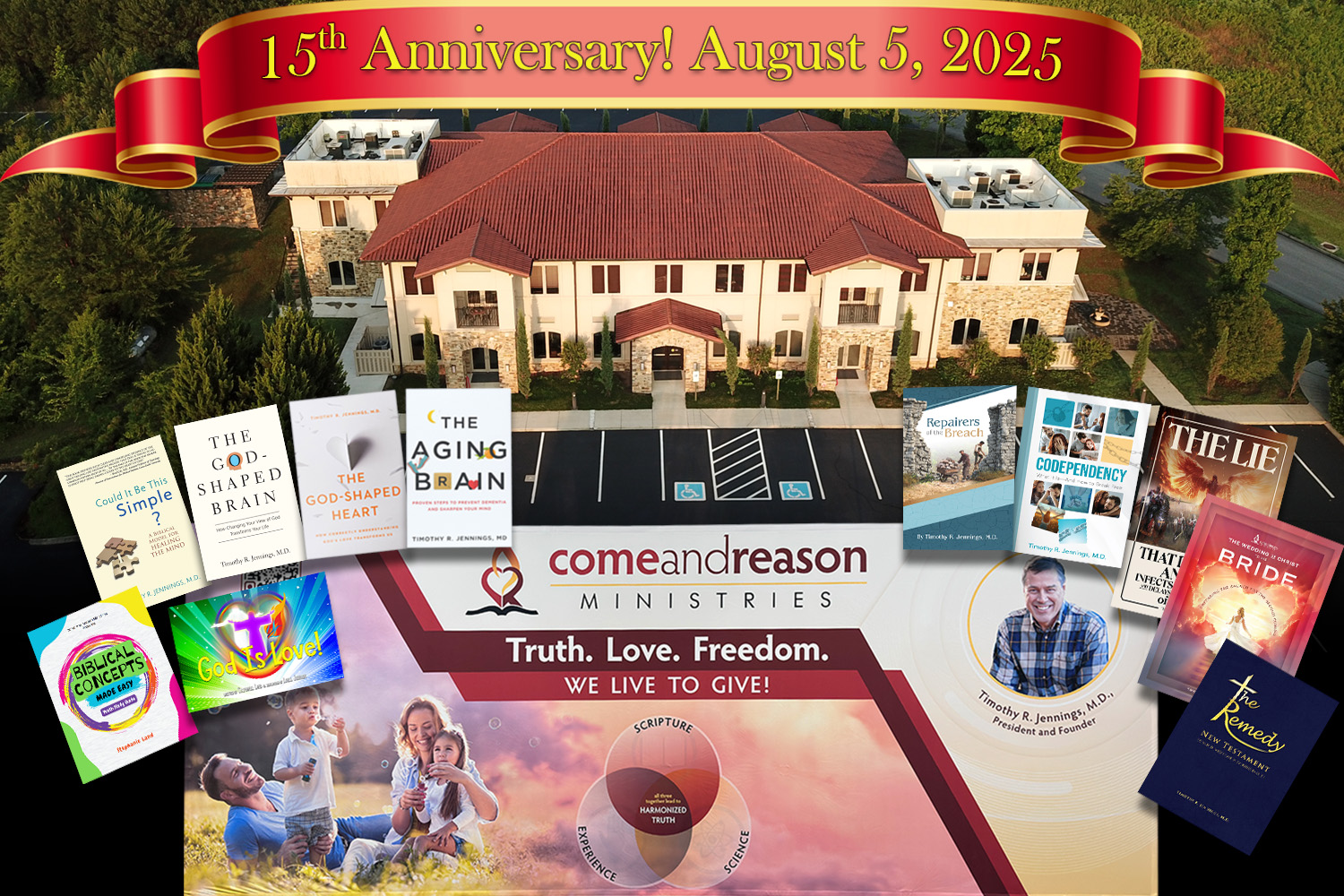Back in 2014, I wrote a blog responding to the email below, but as truth is unfolding and I continue to learn, I have discovered new insights that have expanded my understanding of this question about the Tree of Knowledge, and I want to share those new insights with you here.
Here is the original email question and my updated answer:
I have been thinking a lot about how God is a God of love and not a cruel God. I have gotten to a point that I can’t think past, What was the point of God putting the tree of the Knowledge of good and evil in the garden. I just don’t see the point in it. the only thing that could come out of that tree was death but still God put it there.
To put it into perspective its like a loving father creating the perfect environment for his new born child to live and grow, but then he puts chocolate bar in the middle of his house that he has injected poison into. Would not a loving father protect his children from death rather than putting it in the middle of their habitat?
sincerely,
A confused listener
Thanks for sharing how Come and Reason’s message has been a blessing. The key to understanding the Tree of the Knowledge of Good and Evil is understanding God’s law, which is to say, understanding reality.
God is Creator, the Builder of space and time, the Originator of all creation, the Source of all energy and knowledge, the One from whom life itself arises. As such, God’s laws are the design parameters upon which life is constructed to operate. These include the physical laws, such as the law of gravity, laws of thermodynamics, and laws of health, but also the moral laws like liberty, worship, and love.
Created beings cannot build reality; instead, we make up rules that we call “laws” and then enforce those rules by threats of punishment. All human laws are like this – imposed laws, not design parameters.
When we consider the reason for the Tree of Knowledge, do we understand it through design law or imposed law?
If we accept Satan’s lie and consider God’s law to be imposed, whenever we look at the Tree of Knowledge, our trust in God is undermined rather than uplifted. This is what happened to Adam and Eve. Satan tricked them into believing a lie in regard to how God’s law functions. Right there in Eden, at the Tree of Knowledge, is where Satan first introduced humanity to his lie that God’s law is imposed and, in doing so, he undermined our first parents’ trust in God.
Satan made the claim, “You will not surely die.” What is implied by the talking snake’s declaration? Does this lie say, “God is not capable of executing you, so you cannot die”? Or simply that eating the fruit is not harmful: “You won’t die from doing so. Look at me. I am not dead; that’s proof that eating the fruit doesn’t kill.”
Think through the subtly imbedded lie: If there is nothing inherently harmful with eating the fruit, if the action itself won’t cause death, and yet God said that they would surely die if they did eat it, then what would that mean? That God would have to inflict death upon them. So, what type of law requires the ruling authority to inflict the punishment? Imposed!
But when we return to understand the Bible through the lens of God as Creator and His laws as design protocols for life, then Satan’s lie is exposed and God’s amazing, compelling, beautiful truth is revealed. We see love in action at the Tree of Knowledge. We see liberty at work. We see that the tree was not placed there to set up rules, or trip Adam and Eve up, but for their health and development.
Take a moment to consider through design law (how reality functions) God’s actual purpose in placing the Tree of Knowledge in the garden. What did He want for Adam and Eve? How was this tree necessary for them to fulfill and achieve what God desired for them?
What meaning do you take from the name of this tree – the Tree of the Knowledge of Good and Evil?
Do you see it as the tree of knowing reality? Do you understand it as the place where Adam and Eve would decide what they would know?
What does it mean to know something or someone?
Now this is eternal life: that they may know you, the only true God, and Jesus Christ, whom you have sent (John 17:3 NIV84, emphasis mine).
Is knowing God and Jesus merely cognitive – to know facts, information, data? No. In the Bible, to know means to have an intimate experiential knowledge of something or someone. Think of the difference between knowing about someone from reading a biography and actually knowing them as a friend or family member. Or the difference between knowing how to swim and knowing what swimming is.
The Tree of the Knowledge of Good and Evil wasn’t a place of theoretical knowledge, cognitive knowledge, or academic knowledge. God and the angels had already informed Adam and Eve about Satan, about evil, and about death being the result of sin. The two had been instructed.
Adam and Eve had information, factual knowledge. But having mere facts is not what the tree was about – it was about experience, knowing by experience either good or evil. Choose to trust and believe God and know good – or choose to believe lies, distrust God, and know evil.
God told them, “It is at this tree you will have knowledge, so choose well; choose not to partake of the fruit and you will know good – you will know love, trust, loyalty, devotion, maturity, integrity, joy, peace, and godliness. All of this will solidify in your character. So please, my beautiful children, choose to know good! But if you choose to partake in the fruit, you will know evil – you will know fear, selfishness, insecurity, guilt, shame, distrust, pain, suffering, and death. Please, my beautiful children, don’t choose to know evil.”
God already knew evil – not in His character, but in His heart, as His heavenly home had been fractured. He was already suffering the heartache of betrayal, disaffection, rebellion, being lied about, and the loss of His beloved angel.
God did not want humankind to know this kind of pain, suffering, or heartache. He wanted humankind to know only good, but this required them to choose to trust God – to choose the good in order for them to know it.
There was nothing poisonous about the fruit; it was not physically harmful. The tree was not dangerous or deadly. What was dangerous and deadly was to break trust with God, to believe lies and to act on those lies, to deviate from His design for life, to choose to know evil, to infect themselves with fear and selfishness.
God desired Adam and Eve to live in harmony with Him and His law of love for all eternity. But this required them to think, evaluate, consider, and ultimately choose to know good. They were sinless as God created them, but they had to decide for themselves what they would know – good or evil – and, thereby, form their own characters – either good or evil. Sadly, they chose to know evil. They infected themselves with fear and selfishness, and their condition became terminal – dead in trespass and sin.
But God did not abandon His human children to suffer and die knowing only the pain of evil. No! God so loved the world that He sent His only Son so that we might know God – the source of good – and be restored to good through the victory of Jesus.
Jesus, God’s Son, came to the earth and took up our cause; He picked up humanity deformed by Adam’s sin and cleansed it, cured it, and overcame its sinful weaknesses. As our second Adam, Jesus put God’s good back into the human species and restored humankind back to God’s original design – perfect love. Jesus, as a human, wrote God’s design law back into the species and purged the evil. He exposed the evil and revealed the good!
And oh, how good it is!
Through Jesus Christ, we, though born in a world where each and every one of us know evil, can partake of Him and know good. For “this is eternal life: that they may know you, the only true God, and Jesus Christ, whom you have sent” (John 17:3 NIV84 emphasis mine).
So partake of Jesus – the Bread of Heaven, the Water of Life – and know for yourself what good really is!









 using your credit or debit card (no PayPal account needed, unless you want to set up a monthly, recurring payment).
using your credit or debit card (no PayPal account needed, unless you want to set up a monthly, recurring payment). instead?
instead?